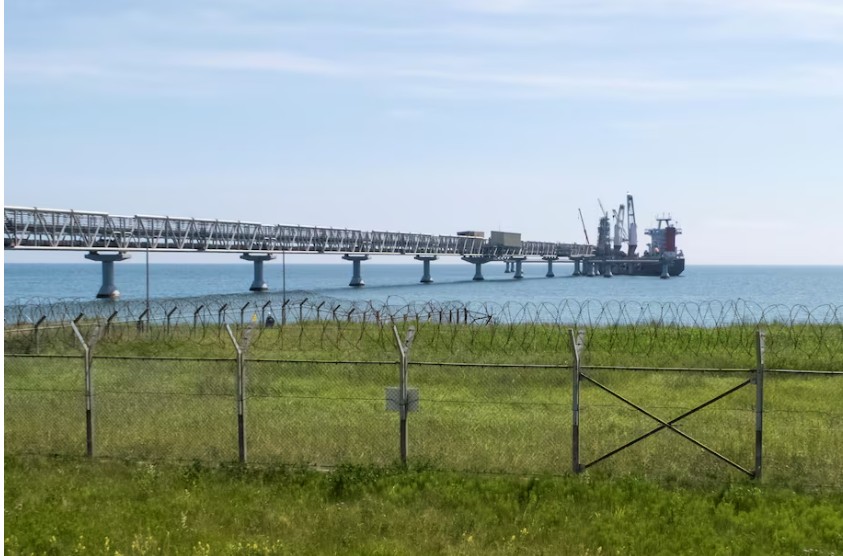U.S. and Russian Officials Held Energy Talks Alongside Ukraine Peace Negotiations

Discussions Signal Strategic Interests Beyond Ceasefire Goals
In a development that adds a new layer to ongoing diplomatic efforts, U.S. and Russian officials quietly discussed energy-related deals during recent Ukraine peace talks held earlier this month, according to five sources familiar with the negotiations.
The behind-the-scenes energy discussions took place on the sidelines of the latest multilateral talks aimed at ending the three-year conflict in Ukraine. The discussions which included mid-level diplomats and energy advisers from both countries reportedly focused on oil transit arrangements, gas market stability, and potential cooperation in post-war reconstruction tied to energy infrastructure.
While no formal agreements were signed, sources described the tone as “surprisingly constructive,” given the otherwise fraught state of U.S.-Russia relations. Two sources emphasized that the talks did not overshadow or derail the broader peace discussions, but they underscore how strategic interests around energy remain deeply intertwined with the war’s outcome.
“Energy wasn’t the headline topic but it was absolutely on the table,” said one source briefed on the discussions.
Mutual Interests Despite Deep Divisions
Though Washington and Moscow remain on opposite ends of the war in Ukraine, both sides appear to recognize the global stakes of energy market stability, particularly in the wake of prolonged price volatility, disruptions to European gas flows, and a shifting global energy landscape.
The U.S. has repeatedly used sanctions to constrain Russia’s energy exports, while simultaneously increasing its LNG shipments to Europe. Russia, meanwhile, has sought new export routes to Asia and is grappling with the long term implications of reduced access to European infrastructure and finance.
According to the sources, areas touched on in the informal energy discussions included:
Reopening or repurposing Ukrainian energy infrastructure after hostilities cease
Global oil price coordination amid Middle East tensions and OPEC+ strains
The future of Russian pipeline gas transit through Ukraine
Ensuring nuclear safety cooperation, particularly around facilities like Zaporizhzhia
Political Sensitivities and No Public Acknowledgment
Neither the U.S. State Department nor the Russian Foreign Ministry officially acknowledged the energy track during or after the peace talks. The sensitive nature of the discussions means few participants were directly involved, and both sides have thus far refrained from publicly linking energy policy to the Ukraine peace process.
One Western diplomat described the talks as “a test balloon to see whether quiet, technical coordination could survive the political climate.”
Another analyst suggested the move reflects pragmatic realism on both sides:
“No one wants to look soft on Russia. But energy is too important for markets, for Europe, for Ukraine’s future.”
Peace Talks Still Fragile
The main Ukraine peace negotiations, hosted in a neutral European capital, remain at an impasse on core issues such as territorial control, security guarantees, and sanctions relief. However, the willingness of U.S. and Russian envoys to broach parallel topics like energy could signal a broader shift toward managed de-escalation or, at the very least, compartmentalized diplomacy.
What’s Next?
While it remains unclear whether the energy discussions will resume or expand in future rounds, insiders say the mere fact they occurred is notable especially in a geopolitical environment where nearly all formal channels have collapsed.
